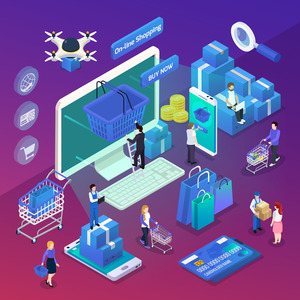


Impact of AI-driven digital twins in retail, focusing on their applications.
In the ever-evolving retail landscape, digital transformation has become a cornerstone of business strategy. Among the groundbreaking technologies reshaping the sector are Artificial Intelligence (AI) and Digital Twins. Their convergence is creating a paradigm shift, enabling retailers to enhance operational efficiency, improve customer experience, and boost profitability. This article explores the transformative impact of AI-driven digital twins in retail, focusing on their applications, benefits, and the role of retail software development services in unlocking their full potential.
A digital twin is a virtual representation of a physical object, process, or system. It mirrors real-world entities by leveraging real-time data, allowing businesses to simulate, analyze, and optimize operations without disrupting ongoing activities.
AI amplifies the power of digital twins by adding predictive and prescriptive capabilities. Here’s how:
The convergence of AI and digital twins opens doors to various applications in retail:
Digital twins can simulate a store’s layout, foot traffic, and sales patterns. By integrating AI, retailers can optimize store layouts to improve customer flow and increase sales, while also managing energy efficiency and resource allocation.
AI-enabled digital twins provide real-time visibility into inventory and supply chain operations. Retailers can track stock levels, predict demand, and optimize inventory distribution across locations.
Digital twins can simulate customer interactions, allowing retailers to design seamless omnichannel experiences. AI insights from these simulations help retailers refine their strategies to meet evolving customer expectations.
AI-powered digital twins enable data-driven decision-making by providing actionable insights, reducing guesswork, and enhancing strategic planning.
Retailers can reduce operational costs by optimizing inventory, streamlining supply chains, and minimizing equipment downtime through predictive maintenance.
By enhancing customer experiences and tailoring offerings, retailers can boost conversion rates and customer loyalty.
Real-time adaptability ensures that retailers can respond quickly to market changes, supply chain disruptions, or unexpected events.
To unlock the potential of AI-driven digital twins, retailers need robust and customized technology solutions. This is where retail software development services play a pivotal role.
Retail software development companies can design and implement bespoke digital twin solutions tailored to a retailer’s specific needs.
Seamless integration of digital twins with CRM, ERP, and inventory management systems is essential for maximizing their utility.
Retail software developers leverage advanced AI technologies, such as machine learning and natural language processing, to enhance the intelligence of digital twins.
With vast amounts of sensitive data being processed, ensuring data security and compliance with regulations like GDPR is critical. Retail software development services prioritize robust security measures.
Despite their immense potential, the adoption of AI-driven digital twins comes with challenges:
